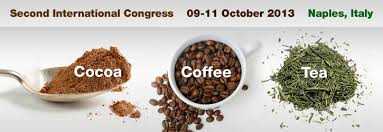by Coughlin J. Coughlin & Associates: Consultants in Food/Nutritional/Chemical Toxicology &Safety, Aliso Viejo, California, USA.
Animal carcinogens in heated foods have been a significant health concern since the 1970’s, when trace levels were discovered in many foods, including PAHs, N-nitrosamines and heterocyclic amines.
Many of these compounds have been studied in the EU’s HEATOX Project, including acrylamide, furan and 4-methylimidazole, all of which have been found in roasted coffee.
While it is obviously important to evaluate the toxicological risks of individual heat-induced carcinogens, it is equally important to fully evaluate the safety of whole foods containing these carcinogens using a combination of modern clinical, toxicological, nutritional and epidemiological techniques.
Currently there is little human epidemiologic evidence linking these trace level carcinogens with the risk of human disease, including cancer.
The health benefits of a food such as coffee, including numerous health-protective compounds found naturally and those produced by heat, are often neglected by public health and regulatory authorities when assessing the overall safety of a food.
In fact, coffee consumption has actually been shown to reduce the risk of several human cancers, in spite of the fact that coffee contains many animal carcinogens, a situation I have called the Coffee-Cancer Paradox.
Therefore, it is critical to evaluate the beneficial health effects of heated foods and then to undertake a thorough risk-benefit evaluation of the whole food. In the case of carcinogens, such an evaluation must carefully consider how best to interpret animal toxicology and cancer bioassay results for individual chemicals, as well as any information that the whole food itself may actually be cancer protective.
References
[1] Arab L.Epidemiologic evidence on coffee and cancer. Nutr. Cancer 2010, 62, 271–283. [2] European Food Safety Authority (EFSA) Scientific Committee. Scientific Opinion: Guidance on human health risk-benefit assessment of foods. EFSA Journal 2010, 8(7), 1673. [3] HEATOX Project. Heat-generated food toxicants: identification, characterisation and risk minimization. http://heatox.org/


















